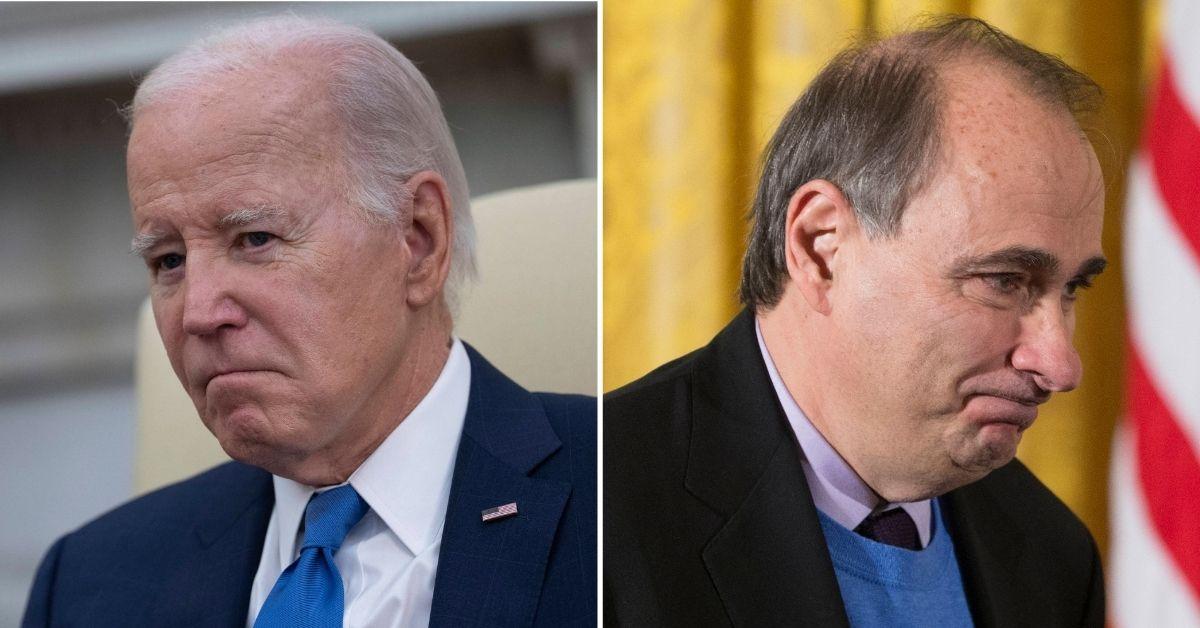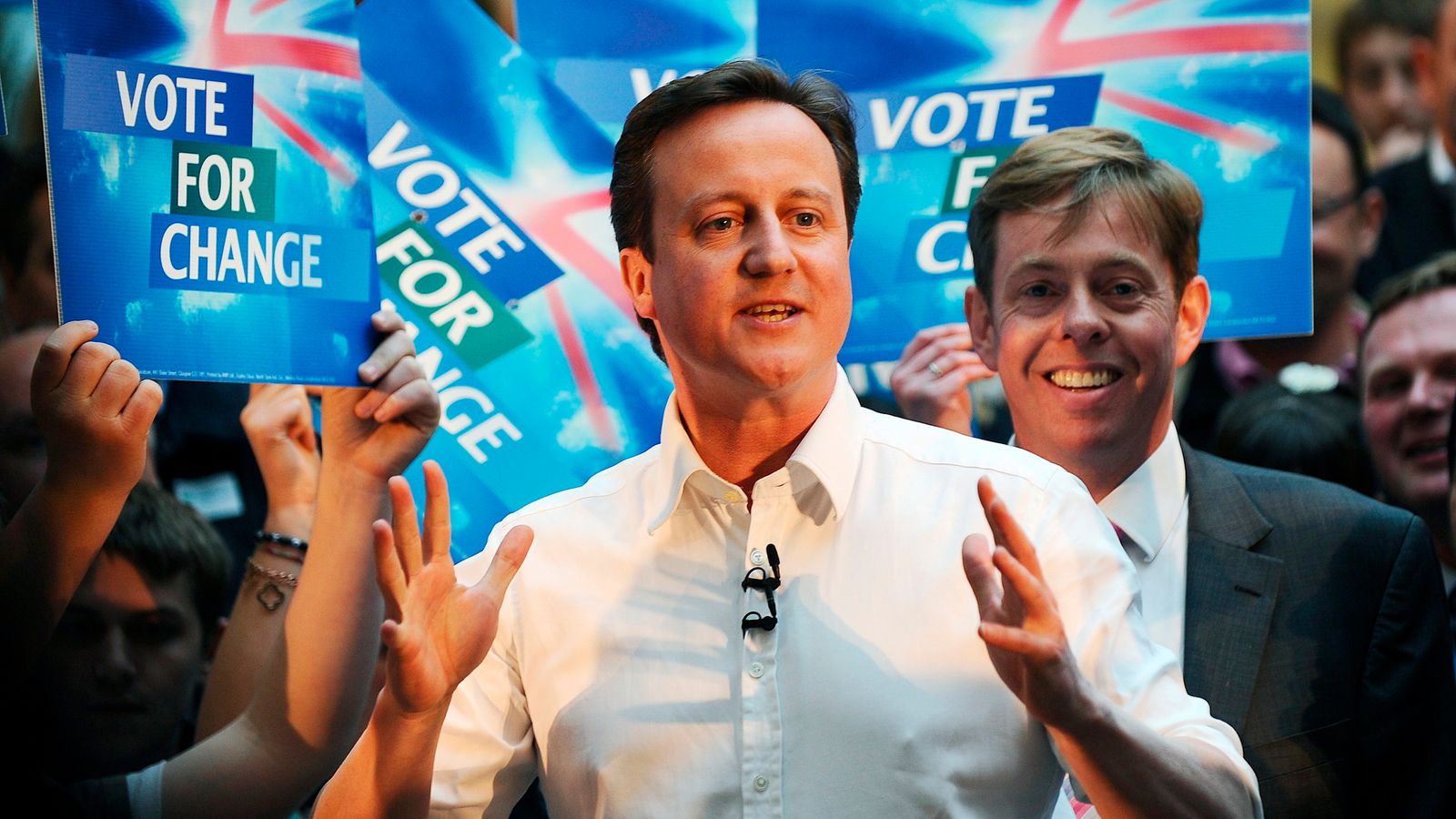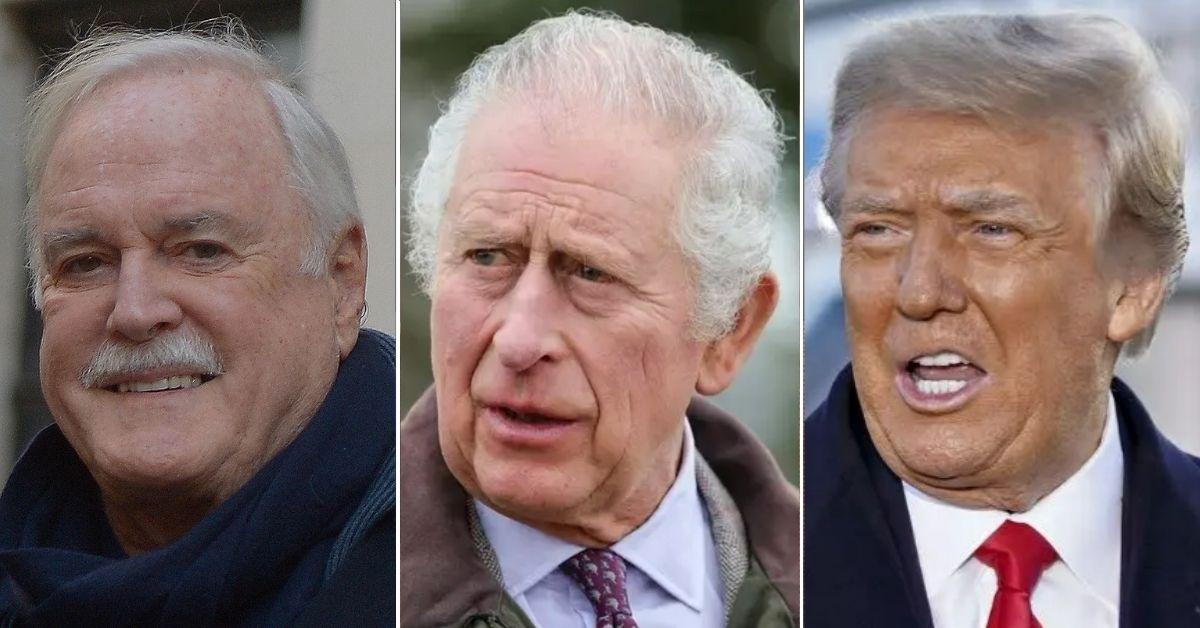Labour plans to expand Lords with new peers if it wins election – despite wanting to abolish it | Politics News
Labour has insisted it still wants to abolish the House of Lords – despite planning to swell its size with new peers if it wins the next election.
Sir Keir Starmer’s spokesman said he was standing by the pledge to get rid of the “indefensible” unelected chamber in his first term of parliament, but said there could be “interim reforms”.
Currently, Labour would need 90 more peers to overtake the Conservatives as the largest party in the upper house.
Last night, The Times reported that Sir Keir was planning to appoint dozens of peers to prevent his government having its agenda thwarted – with bills needing the approval from both the Commons and the Lords before they can be passed.
A senior Labour source dismissed this as “speculation” and “inaccurate” as “you can’t just replace the need for Commons ministers with Lords ministers”.
But today, Sir Keir’s spokesman admitted previous governments had needed more than one term to create enough peers to ensure they could get their business through parliament.
Sir Keir’s spokesman said: “Every government when they first come into power do not have a majority within the House of Lords because of the nature of the appointments process.
“And every government as a matter of custom and practice looks to make appointments to the House of Lords but it’s not something that’s done in one fell swoop, it’s something that takes time and often takes more than a term in government for that to happen.”
He added that new Labour peers would be expected to back abolition, with the full details of the policy to be set out ahead of the next general election.
Read more: Why does Sir Keir Starmer want to abolish the Lords?
But the position raises questions – including why appoint any peers if the number will not give Labour a majority in the Lords before it is abolished.
In December, Sir Keir unveiled plans led by former prime minister Gordon Brown to replace the Lords with a democratic assembly of nations and regions.
He said he did not think anybody could “defend” the institution adding: “We’re going to get one shot at fixing our economy and fixing our politics and I want to make sure we get it exactly right.”
There are currently 779 members in what is one of the world’s biggest upper chambers, even before Boris Johnson’s resignation honours choices take up their positions.
Labour has been sharply critical of the tradition of resignation honours – but earlier today, a frontbencher insisted this was not comparable with the party’s plans.
Shadow environment secretary Jim McMahon told Sky News appointing peers in order to pass legislation is “quite different than Boris Johnson, who’s awarded his cronies, awarded people who were in the scandal of lockdown parties”.
He added that Labour still “has an ambition to replace to replace the House of Lords with an elected chamber” on “day one”.
There have been long-standing concerns over the expanding size of the second house.
However, the idea of abolishing it is not universally popular.
Tory MP Simon Clarke previously tweeted: “Anyone who has looked at the institutionalised gridlock in US politics can see the utter stupidity it would be to create an elected upper house, fatally undermining the primacy of the Commons.
“If we want effective government *of any colour*, this is a terrible idea.”
Lord Speaker Lord McFall has argued his chamber is too large and should be reduced but is pushing for reform rather than replacement.
Sir Keir’s spokesman suggested reforms could take place before full abolition, such as getting rid of by-elections for the remaining hereditary peers.
He said: “There may be interim reforms along the way, I’m not ruling that out.”




